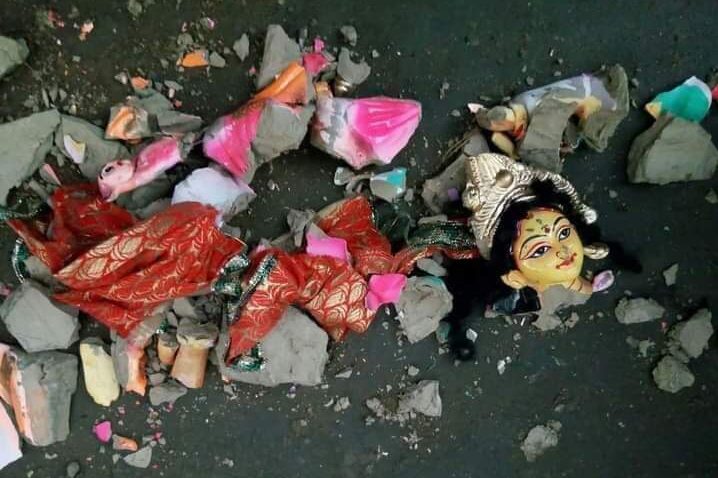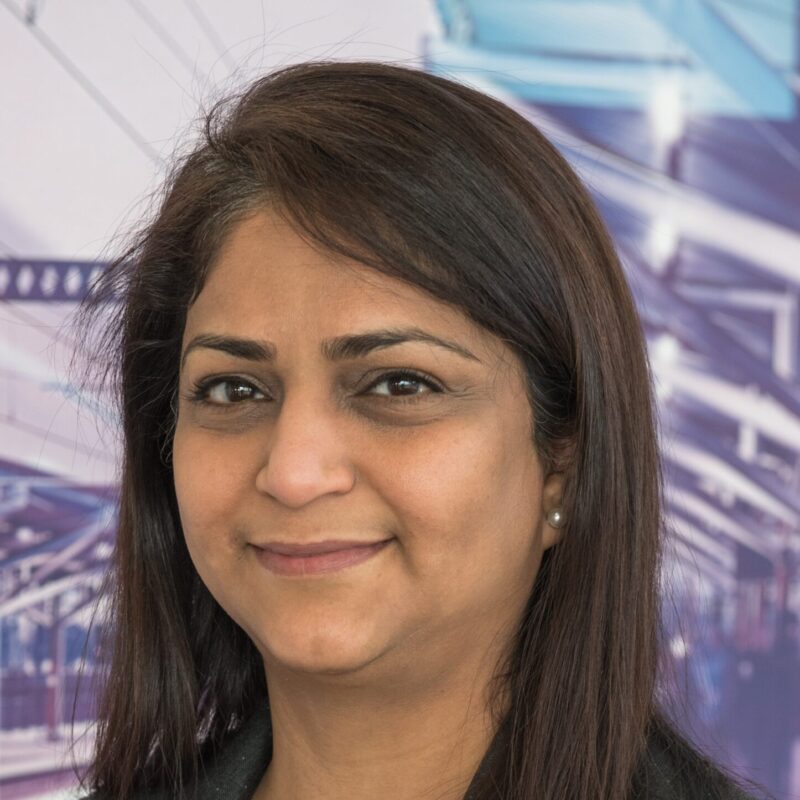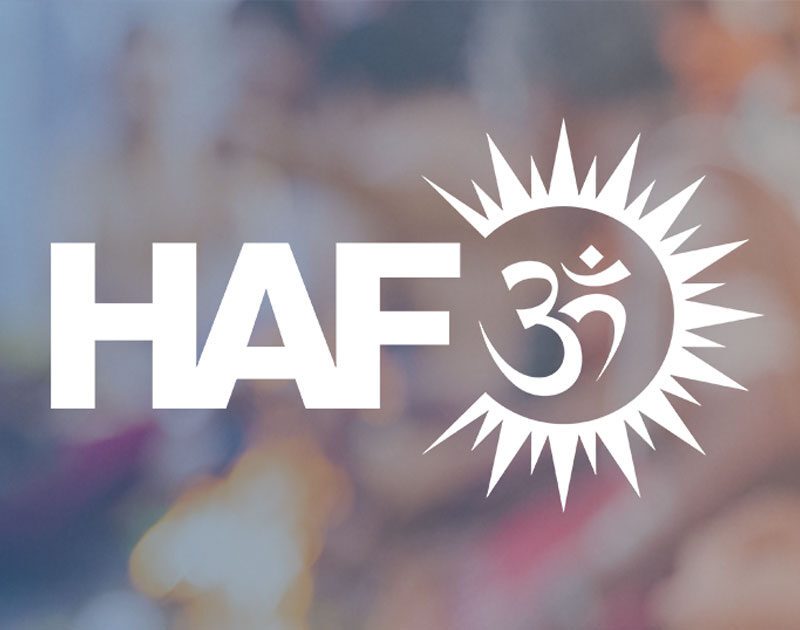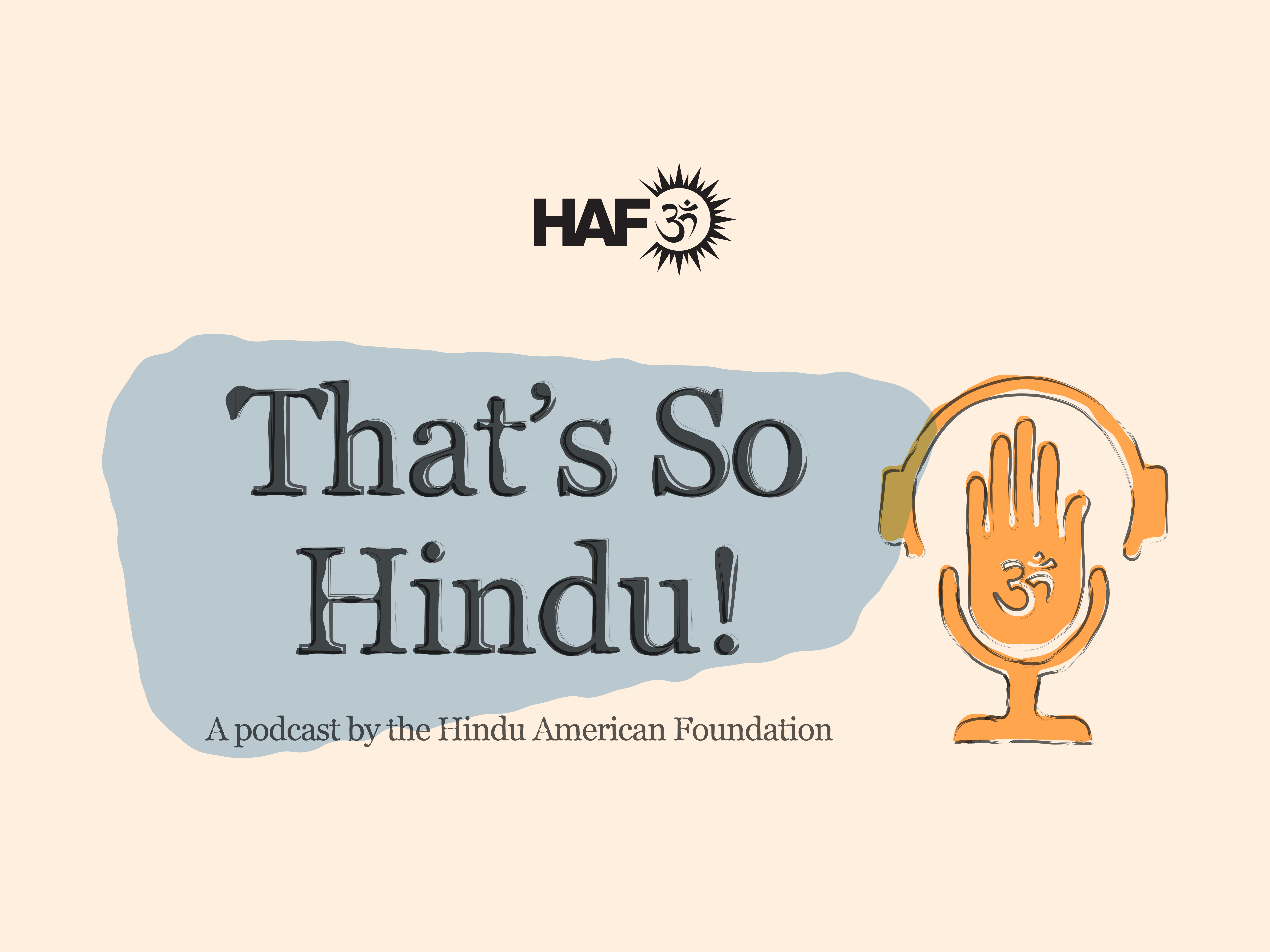

Violence erupted in Bangladesh following allegations that a copy of the Quran was “disrespected” by being placed at the feet of a Hindu deity during a 10-day Durga festival in the district of Cumilla on Oct. 13, 2021.
After a photo of the described allegation was shared on social media, widespread attacks against Hindu minorities was organized throughout the country, including rape, murder, and the looting, burning, and vandalization of homes, temples, and shops.
The following is an interview (completed on Oct. 25, 2021) with a human rights activist and Hindu leader in Bangladesh who has first-hand experience of the ongoing atrocities in the country. He has chosen to remain anonymous for his safety.

HAF: For those who are unaware, what happened during and after the Durga Puja this year in Bangladesh?
Bangladeshi activist: Muslim extremist groups are targeting unaware and unprepared Hindu areas where small numbers of Hindu families live. Side by side, they attack suddenly, or after Jum’ah (Friday prayer).
HAF: How many Hindus do you think have died at the hands of extremists during Durga Puja and the week following the festival?
Bangladeshi activist: It seems to me that around 10 Hindus have died, although no survey has been done. Hindus live scattered in Bangladesh without a strong network among them.
HAF: Why are news reports saying only seven or less have been killed, when it seems obvious there have been more deaths?
Bangladeshi activist: The Bangladeshi media seems to be controlled by some authorities. They generally don’t publish news of atrocities against Hindus. If they publish, they try to hide some incidents. It is also true that some journalists may have the same mentality that Islamic terrorists have.

HAF: Fake Facebook content has been used in the past to trigger communal violence against the Hindu community. What needs to be done in order for social media-sparked violence to be prevented in the future?
Bangladeshi activist: To prevent future incidents, the government must punish the culprits, but this is rare in Bangladesh.
HAF: The strategic and coordinated nature of the attacks make it seem as if they could have been planned for some time. If this is true, why do you think such plans are being initiated now? What do you believe will come next?
Bangladeshi activist: It is crystal clear that they are implementing a plan systematically. I’m from a remote village where 99 percent are Muslim. In my village, 99 percent of my friends are Muslim. I’ve noticed a great change in their thinking between childhood time and matured time. It is also true that returning Islamic State-terrorist groups, as well as the Taliban, are working hard to increase their followers, and have been successful. To speak frankly, the present atrocities are a kind of preparation for future Hindu cleansing.
HAF: In what ways has Bangladesh failed to maintain its promise of secularism?
Bangladeshi activist: Politicians are not secular themselves. They are using Hindus as tools because there is no authority like the Organisation of Islamic Cooperation for Hindus. The terrorist groups are making people support their power politics.

HAF: How and why has the state failed in its duties to protect its minorities?
Bangladeshi activist: There is no international pressure, and political parties need Muslim vote as they are more than 90 percent.
HAF: What can be done right now to help Hindus in Bangladesh?
Bangladeshi activist: To take proper action against atrocities, to stop Islamic terrorism practice, to implement again the constitution of 1972, and if possible, a separate district for Hindus, etc.
HAF: What needs to be done and who needs to do it to prevent future violence against minorities in Bangladesh?
Bangladeshi activist: The Bangladeshi government, along with neighboring countries and the international community, should work together.








































